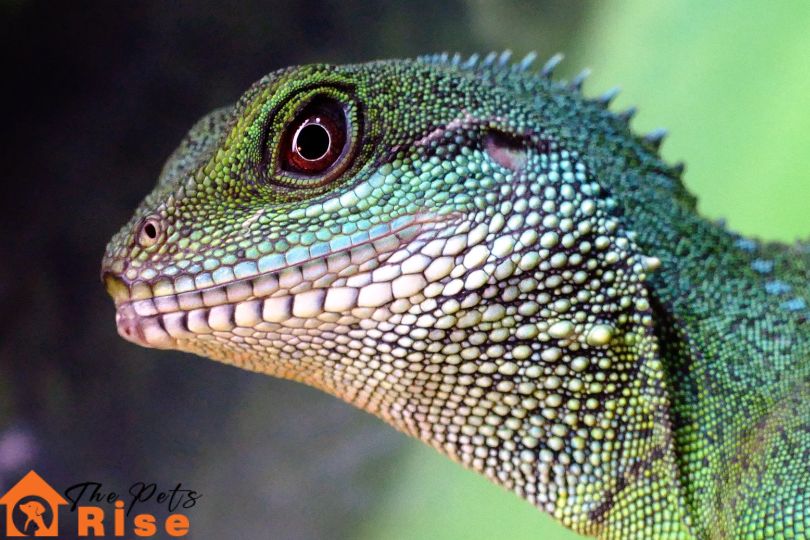When it comes to owning exotic pet then most of them will be excited to own one. Though there are regular pets that we see all day around from dogs to cats and birds. However, there are some of the best exotic pets for beginners as well that enhance your pet-keeping joy. Safe exotic pets can be an exciting and rewarding experience, but it also comes with a unique set of challenges and responsibilities. In this article, we will explore 7 essential tips for those considering or currently caring for exotic pets. From selecting the right pet to providing proper care and ensuring their well-being, we’ve got you covered.
Why So Buzz About Owning Exotic Pets?
One may wonder why some individuals feel such an overwhelming pull to own exotic pets; I can help untangle this mystery for you! People desire exotic pets for various reasons; here to decode it for you is where I come in.
First off, exotic pets are like Mother Nature’s version of a living art exhibit. The sheer diversity in shape, size, and color is enough to make you question your crayon box. They’re Instagram-worthy, no doubt!
But it’s not just about aesthetics. Some exotic pets are more manageable and less needy than traditional ones. They often require less space, so apartment dwellers can jump on the exotic bandwagon too.
Another perk? Owning exotic pets can be a conversation starter like no other. Imagine the bragging rights at your next dinner party when you casually mention your pet iguana, Larry, who eats lettuce like a champ!
Let’s not forget the educational aspect. Exotic pets offer a unique opportunity to learn about different ecosystems, conservation, and biology. It’s like having a personal National Geographic documentary right in your living room.
But hold your horses (or your exotic reptiles)! Before you dive into the exciting world of owning exotic pets, here are seven tips to ensure your adventure is safe, enjoyable, and doesn’t turn into a ‘Jurassic Park’ sequel.
Tip 1: Do Your Homework
Owning exotic pets isn’t as simple as picking out a goldfish at your local pet store. It’s more like choosing the rarest Pokémon. You need to research, research, and did I mention research? Start with the basics:
- What’s legal in your area? Laws regarding owning exotic animals vary, so don’t end up on the wrong side of the law.
- Learn about the specific needs of your chosen pet. What does it eat? What kind of habitat does it need? Is it nocturnal or diurnal (a fancy way of saying day or night-loving)?
- Find a reputable breeder or seller. Avoid sketchy individuals who sell you an “exotic” pet out of the back of their van.
Tip 2: Budget Wisely
Now, I don’t want to rain on your parade, but owning exotic pets can get a tad expensive. Your wallet might be in for a wild ride (pun intended). Consider the costs of:
- Buying the pet itself
- Suitable housing, like a tank or enclosure
- Specialized food and supplements
- Veterinary care (yes, even reptiles need check-ups)
- Licensing and permits (more red tape, yay!)
- Unexpected expenses (because pets are unpredictable, just like the weather)
So, before you commit to owning an exotic animal, make sure your bank account is on board. You don’t want to end up selling your car to feed your pet boa constrictor.
Tip 3: Create the Perfect Habitat
Your exotic pet isn’t going to feel at home in a cardboard box, right? You’ll need to create a mini-paradise that mimics their natural environment as closely as possible. Think of it as an interior design project, but with more reptiles and fewer throw pillows.
- Temperature control is crucial. Some exotic pets are as picky as a cat on a hot tin roof about their climate.
- Don’t forget the lighting. Certain animals need specific UV rays to thrive, just like you need your daily dose of vitamin D.
- Enrichment is key. Even though your pet isn’t prowling the African savannah, they still need mental stimulation. Toys, climbing structures, and hiding spots are all fair game.
Tip 4: Diet Matters
Now, let’s talk grub. Owning exotic animals means becoming a bit of a gourmet chef. Different species have different dietary preferences, and you can’t just serve kibble and call it a day.
- Consult an expert or do some serious Googling to understand your pet’s dietary needs.
- Fresh and varied is the name of the game. Some animals need live prey, while others munch on fruits and veggies.
- Portion control is vital. Overfeeding can lead to health issues, and you don’t want your pet iguana to resemble a beach ball.
Tip 5: Vet Check-Ups are Non-Negotiable
Just because your pet isn’t a dog or cat doesn’t mean they’re immune to health problems. Regular vet check-ups are a must, even for those owning exotic pets.
- Find a vet who specializes in exotic animals. They’ll know the ins and outs of your specific pet’s health needs.
- Don’t wait until your pet is sick. Regular check-ups can catch issues before they become major problems.
- Keep an emergency fund for unexpected vet bills. Remember that “Jurassic Park” sequel scenario? Don’t let it happen.
Tip 6: Respect the Wild
Owning exotic animals doesn’t mean you’ve tamed Mother Nature herself. These creatures may be domesticated, but they’re still wild at heart. Treat them with respect and keep in mind:
- They might not be cuddle monsters. Some exotic pets are hands-off types, and that’s okay.
- Safety first! Keep kids and other pets away unless you’re 100% sure they won’t become a snack.
- Avoid taking your pet out into the wild (unless it’s a conservation program). Released pets can wreak havoc on local ecosystems.
Tip 7: Educate Yourself Continuously
The world of exotic pets is ever-evolving. New research, better pet care techniques, and updated laws can all impact your pet’s well-being. So, stay in the know:
- Join online forums and communities. They’re a treasure trove of knowledge.
- Read books and articles about your specific pet. Knowledge is power, my friend!
- Attend local reptile or exotic pet expos. You might even make some like-minded friends.
And there you have it, the lowdown on owning exotic pets in seven bite-sized tips. Remember, it’s all about balance. Your exotic pet can bring a world of wonder into your life, but it’s essential to respect their unique needs and quirks. With a bit of preparation and a dash of humor, you’ll be the coolest exotic pet owner on the block. Happy adventuring, future Dr. Dolittle!







